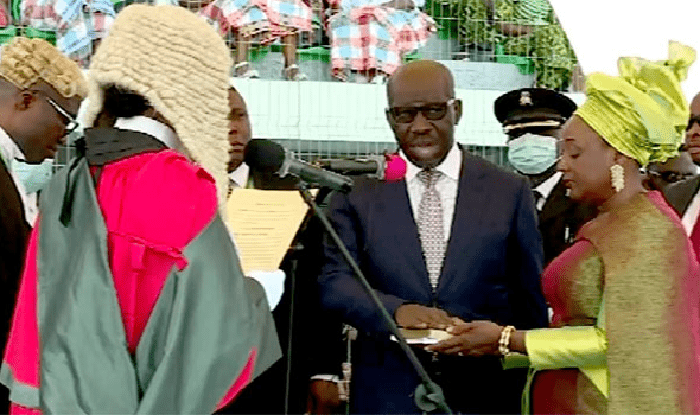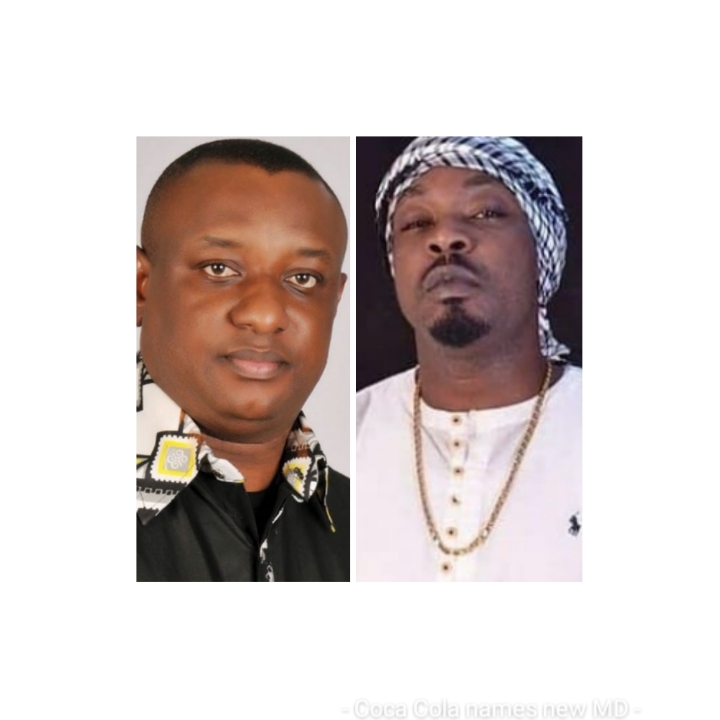The move by president Buhari to honour late Chief MKO Abiola, winner of the annulled June 12 1993 elections, with the highest honour of the land, GCFR
The move by president Buhari to honour late Chief MKO Abiola, winner of the annulled June 12 1993 elections, with the highest honour of the land, GCFR, has received mixed feelings from lawyers, with supporters of the government seeing it as a welcomed move while critics dismissed it as a desperate political calculation ahead of 2019 elections in which Mr Buhari has declared he would run for second term. Evidently, the National Honours Act is silent on whether or not the national honours could be bestowed on a deceased citizen of Nigeria.
While the law said a fallen member of the armed forces could be posthumously awarded a medal for “pre-eminent act of valour or self-sacrifice in the presence of the enemy, or for devotion to duty in the presence of the enemy,” it was silent on the national honours, which are civilian honours different from medals. The relevant section of the law stated the requirements for awarding national honours to a Nigerian as follows:
(I) The President shall by notice in the Federal Gazette signify his intention of appointing a person to a particular rank of an Order.
(2) Subject to the next following paragraph of this article, a person shall be appointed to a particular rank of an Order when he receives from the President in person, at an investiture held for the purpose-
(a) the insignia appropriate for that rank; and
(b) an instrument under the hand of the President and the public seal of the Federation declaring him to be appointed to that rank.
(3) If in the case of any person it appears to the President expedient to dispense with the requirements of paragraph (2) of this article, he may direct that that person shall be appointed to the rank in question in such a manner as may be specified in the direction.
This apparent legal vacuum created by the silence of these relevant sections on the eligibility or otherwise of a deceased has thrown Mr Buhari’s action up for individual opinions of lawyers.
Liborous Oshoma, a legal analyst and public commentator said even though the law is silent on whether or not the honours could be awarded posthumously, the sub-section three that said the president could exercise discretion by awarding it to someone who is not president has rendered his action valid. Another lawyer, Lilian Eronini, disagreed, saying the president flouted the law in conferring national honours posthumously.
“Even though it is important to honour the memory of Mr Abiola, the way the president went about it is illegal. Of course, we know the president did this to get votes from the Southwest people who are very passionate about June 12. But there are so many problems going on in the country, and it seemed the president colluded with Lai Mohammed to distract Nigerians with this controversy. They should respond to the resolutions passed by the National Assembly against the transgressions of their government, they should not sweep that under the carpet.”
Also weighing in on the dispute was Chris Uche, who said Mr Buhari stretched the aspect of the law that allowed a president to give national honours to individuals in their absence.
“The section is not flexible enough to accommodate posthumous award on the dead. It would be stretching the law to say because someone who is not present could be awarded then it means a dead person could be awarded, it was more about a person who is alive but unable to make it to the ceremony. I recognise the “nobility of Mr Buhari’s intention” towards Mr Abiola and Mr Fawehinmi, but it must be done within the confines of the law. Although the timing appears political.”
A UK-based Nigerian lawyer and June 12 activist, Abdul Mahmud, said the claim by former CJN, Alfa Belgore was wrong in saying the president’s action was illegal. The lawyer expressed surprise that people have been quoting the former CJN’s position.
“Folks are quoting him! Please, go look at the law yourself, National Honours Act, 1964. It is online. Look at the Honours Warrant, a subsidiary legislation made pursuant to the National Honours Act, 1964; then look at Section 2 (1) & (2) of the Honours Warrant which deals with eligibility for appointment to orders.
“The CJN is wrong. Dead wrong. That the eligibility for conferment only states two conditions for eligibility in Section 2(2) Honours Warrant. The conditions are: 1) must be a citizen of Nigeria. 2) Any person which the president considers eligible for honourary appointment. The provision of Section 3 (2) Honours Warrant which says a recipient must appear in person to receive his honours is clawed back by Section 3(3), which grants the president powers to dispense with the requirement of section 3(2). It is not correct that posthumous honours cannot be made. Once a recipient meets the threshold eligibility, the president can dispense with the appearance of the honoured at the investiture. You may have been better tutored in law than the former CJN,” Mr Mahmud said.


